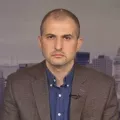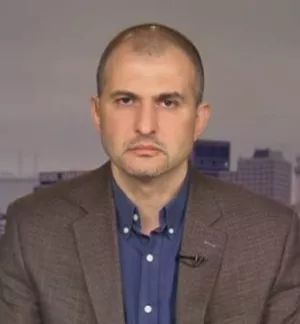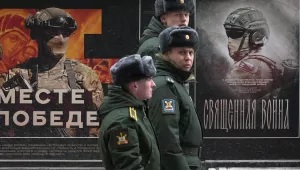Putin and Medvedev’s job swap announced on 24 September at the United Russia Party Congress is no castling. Putin's return to the Kremlin in May 2012 – which Russian voters are widely expected to rubber-stamp in March 2012 – will put an end to joint-rule in Russia. Putin has been and will again be a much stronger president, who enjoys greater support within the elite and doesn't need a co-ruler; Medvedev would be a much weaker prime minister than Putin, who has had a big say in all major decisions during his protege’s presidency. Nevertheless, we can expect Medvedev to retain the premiership for a considerable time, as Putin believes firing his protégé would dent his reputation.
No tectonic shifts in foreign policy as US-Russian reset exhausts potential
Given Putin’s affinity for tongue-lashings of western powers in speeches to domestic audiences, his comeback may result in a toughening of Russian rhetoric vis-à-vis the West. Also, as opponents of Russia’s rapprochement with the West may say, western powers should no longer expect ‘presents’ from Russia, such as the March 2011 abstention on the Libya resolution at the UN Security Council. Putin will also probably be less willing to make concessions that would facilitate Russia’s entry into the WTO, and should be expected to try more actively to tie down post-Soviet neighbors, primarily the Ukraine, which Moscow wants to join the Customs Union of the Eurasian Economic Community.
Overall, however, no tectonic shifts in Russia’s foreign policy should be expected, since Putin has had a major say on most major issues during Medvedev’s presidency. That applies to the US-Russian reset, which could not have happened without Putin’s tacit consent. US President Barack Obama and Vice-President Joe Biden’s rhetorical overtures to Medvedev have not been lost on Putin, but both US leaders made a point of meeting him in Moscow, and the vice president also invited Putin to visit the United States. More importantly, Putin has tended to put pragmatic considerations first, and it will be the interests of Russia – and of Russia’s ruling elite, as he sees them – that will continue to guide Moscow’s policies vis-à-vis Washington when he returns to the Kremlin.
One fundamental problem with the reset, however, is that both sides have already picked all of the low-hanging fruit, including: modest reductions in strategic nuclear forces; a suspension of NATO expansion Eastward; scaling down of competition for influence in the post-Soviet neighborhood; American support for Russia’s WTO bid; new rounds of sanctions on Iran; and transit through Russia and Central Asian republics to Afghanistan. And while chances are reasonably good that Moscow and Washington will work out a deal on missile defense before the NATO summit in May 2012, deep reductions in nuclear arms, including non-strategic weapons, a new round of substantive UNSC sanctions on Iran, or any other substantial leaps in the bilateral relationship would be much more difficult to attain, especially given the approaching election cycle in the United States. Nor should Putin’s Russia be expected to publicly heed calls to participate in any international projects that China would view as threatening, given Moscow’s determination to avoid steps that may anger its powerful eastern neighbor. A protracted economic crisis, however, may make Russia more inclined to seek cooperation with the United States and other western countries, if only to attract know-how and investment to modernize the Russian economy.
Putin’s comeback unsurprising, recently decided
While hardly any Russia expert is surprised by Putin’s decision to return to the Kremlin, there is no consensus on what exactly led him to replace Medvedev – especially given that his protégé’s suffered no major public failures during his presidency and that he outlined an ambitious agenda of modernizing Russia for years to come. In their announcement, neither of the two leaders offered any explanation. Medvedev did note, however, that Putin’s return was one of the options that he discussed with his mentor at the time of their “comradely union”.
This indicates that Putin's return might have been a recent decision rather than an inviolable clause in their original bargain struck at the time Putin selected Medvedev as his successor several years ago. It was not until five days later that Medvedev tried to give a plausible explanation for his decision, during an interview with three national television channels. In the interview on 29 September, Medvedev said he was stepping aside because Putin was more popular and he didn’t want to directly compete with him. This rather humble explanation did not shed any light on why Putin opted for a comeback, a decision that a number of Russia experts believe he made only sometime this summer.
My guess is that Putin has come to doubt his protégé’s ability to either safely steer the Russian ship of state in increasingly stormy waters, or to reliably defend his and his allies’ interests in the years to come. Such a loss of confidence in Medvedev was among the factors that I predicted could prompt Putin to return, in a paper co-authored with Nabi Abdullaev in May 2011. Medvedev may have proved too weak as a ruler, especially in the eyes of an overbearing strongman who waged war to prevent the disintegration of Russia and wrestled with rebellious oligarchs. Key figures in the Russian government were reported to have privately lamented that Medvedev's initial handling of the war with Georgia in 2008 was weak and inadequate. Just as importantly, the incumbent didn’t make any qualitative leaps in treating Russia’s domestic ills, such as backwardness of economy, corruption and political violence in the North Caucasus. While Medvedev pushed through a number of laws to fight corruption, his vows to economically modernize Russia had rather limited practical impact, and insurgency remains robust in the North Caucasus.
Retrenching ‘managed democracy’
Whatever the real reason for Putin’s return, it not only dismays those who have thrown their lot in with Medvedev’s modernization agenda, but also disappoints those who had hoped that Putin’s system of ‘managed democracy’ and its vertical of power would be capable of facilitating a duly (if undemocratic) succession of power from one leader to another – like in China where successors are selected as discreetly as in Russia, but where the previous leader will not return once a transition occurs. Putin’s return to the Kremlin cements the personalization of power in Russia and solidifies the system of ‘managed democracy,’ one of whose goals is to protect the interests of the ruling clan by preventing any redistribution of property or loss of control over state-controlled flagships of the national economy. The failure of this system to facilitate orderly, irreversible succession almost compels its top manager to become a ruler for life.
If Putin serves two six-year terms starting in May 2012, then he will have been president for a total of over 20 years in May 2024, given that he already served as Russia’s president from December 1999 to May 2008. This means that he will have stayed longer in power than Soviet leader Leonid Brezhnev who ruled for 18 years. When Putin’s second six-year presidential term ends in May 2024, Putin will be 71 years old – older than his predecessor Boris Yeltsin when the latter resigned, but younger than either Brezhnev or Joseph Stalin when their rule ended. If the Russian Constitution’s language on presidency, which bars presidents from serving more than two consecutive terms, remains the same, then Putin can again designate a successor sometime in 2023. The successor will run for president in 2024 while Putin can return to the Kremlin again at the age of 77, provided that he wins the 2030 elections.
Putin unlikely to pursue deep reforms in absence of protracted crisis
Few leaders try to launch deep reforms late in their rule, and Putin – who championed ‘stability’ during his 2000-2008 presidency – should not be expected to be any different, especially since his supporters among the bureaucratic and business elites benefit from the status quo. Putin’s Russia, however, will continue to suffer from a number of serious, chronic problems, some of which could acquire an acute form if a global economic crisis hits.
These include: a backward economy (including its heavy dependence on oil that accounts for 50 percent of Russia’s budgetary revenues and dominance of large, state-controlled companies); rising public expenditures (which have multiplied the budget 10-fold in 11 years to account for 20 percent of GDP); social inequality (with a Gini Coefficient of 42.2); severe regional disparities (where the GDP of one region is 440 times smaller than that of another); and labor shortages (Russia is forecast to lose 10 million workers by 2025).
Of these challenges, it is the dependence of the Russian economy on oil that may come to pose the most burning challenge to Putin early in his presidency. To break even, Russia’s 2012 budget needs oil prices to average $100 a barrel, but if fears of another global recession become a reality, prices could fall as low as $60 – which was the figure during the previous crisis, when Russia’s GDP shrank by 7.8 percent in one year, more than that of any other G8 or BRIC country.
Solution to these problems will require deep reforms, some of which would run contrary to the interests of some of the entrenched clans that support Putin and would risk destabilizing his system of governance. Therefore, Putin should not be expected to pursue such reforms unless a global economic recession or other factors make the aforementioned ills so acute for so long that they start threatening his rule.
Whether the bureaucratic and business elites that benefit from Putin’s rule will be able to facilitate needed reforms or whether they will persist in opposing them, will depend on how entrenched they have become – and how rigid their social contract with the Russian population when the need for such reforms becomes critical.
Simon Saradzhyan is Research Fellow at Harvard Kennedy School's Belfer Center.
Saradzhyan, Simon. “Putin's Comeback: Fast Forward to the Past.” International Relations and Security Network, October 5, 2011



